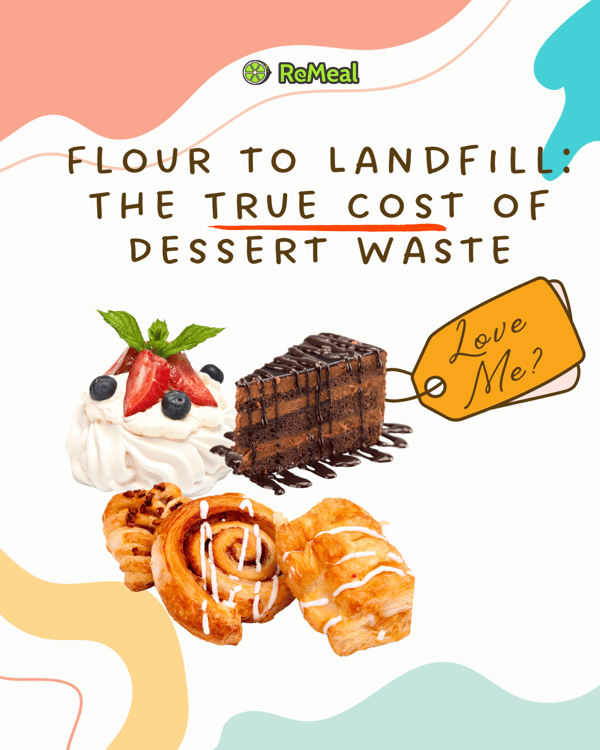Food waste has long been a silent crisis in Malaysia, often overshadowed by larger environmental and social challenges. Good news, on 14th June 2025, ReMeal was invited to join a workshop on "Measuring the Impact of Food Rescue and Redistribution Activities in Malaysia" held in Sunway University by a group of researchers from the Food Rescue Project. During the workshop held at Sunway University, a wave of optimism swept through the room as stakeholders, activists, and changemakers spotlighted a powerful truth: Malaysia's food rescue movement is gaining serious momentum. The workshop covers on the environmental, nutrition, social and economy impact.
Beyond the well-known names like MYSaveFood Ramadan and ReMeal, several organisations are working quietly yet impactfully to reclaim surplus food and redirect it to communities in need.
Meet the Changemakers
Pasar Grub
A grassroots social enterprise turning "ugly" or surplus produce into nutritional lifelines for low-income families. With over 41,000 kg of repurposed food, they're reshaping perceptions around waste and wellness.
Food Aid Foundation
Operating like a food logistics powerhouse, this foundation has delivered over 3 million meals and rescued surplus goods worth nearly RM20 million — all channeled to soup kitchens, charities, and underserved households.
Kechara Soup Kitchen
With 17 years of relentless service, Kechara reaches the homeless and marginalized, offering meals, medical aid, and a chance at reintegration through empowerment programs.
The Lost Food Project
A sustainability-driven food bank that not only feeds but also fights environmental degradation — having diverted 9 million kg of food waste and delivered 25 million meals, while tackling period poverty with dignity kits.
MYSaveFood @ Bazar Ramadan (Pemuda Gema)
Known for rescuing festive bazar leftovers, this initiative led by youth NGO called Pemuda Gema redistributes food within the same day — now reaching almost 200 locations nationwide, from mosques to student dorms.
ReMeal
A tech-savvy solution offering F&B vendors a lifeline to reduce food waste through discounted sales of surplus items via a user-friendly app.
Environmental Impact
In a session led by WWF Malaysia, a powerful fact set the tone:
"the nutrients lost to global food waste could feed every malnourished person on Earth".
Reducing just one-third of this waste could create transformative environmental impact:
Saving 250 trillion litres of freshwater annually (from the 69% currently consumed by food production)
Sparing over 18,000 km² of forests (equivalent to 2.6 million football fields)
Slashing global energy use by 10%, enough to power more than a billion homes each year.
Free up 21% of landfill space and avoid much of the methane that is emitted from rotting food
Tackling food waste isn’t just a moral imperative — it’s one of the most effective climate actions we can take.
Nutrition Impact
Next session, delivered by The Lost Food Project, rang loud and clear with the call:
“Feed the hungry, not the landfill.”
With global surplus food enough to nourish every hungry person four times over, the issue isn’t scarcity — it’s a systemic failure rooted in flawed logistics, policy, and empathy. Food waste is not about having too much — it’s about underutilizing what we have. Crucially, surplus food is not just calories; it’s nutrition. Redirected properly, it supports health and child development in vulnerable communities, shifting the narrative from merely feeding to truly nourishing. By tracking nutrition, organizations ensure dignity and effectiveness in food deliveries, uncover gaps in donor partnerships, and inform both donors and policymakers on the quality of food distributed. Still, challenges persist: donations vary widely, labelling is often missing — especially with cooked food — and capacity constraints make it tough to manage the ever-changing food mix. But with smarter systems, that surplus holds the power to transform lives and restore balance to both people and planet.
Challenges Beneath the Surface
Despite their heartwarming impact, workshop participants shared that Malaysia still lacks a standardized framework to measure the environmental gains of these food rescue efforts — especially concerning carbon footprint reduction. Sustainability remains a struggle, as many initiatives rely heavily on volunteerism and sporadic funding. There's no long-term national policy or infrastructure to ensure operational continuity. It’s not just about rescuing food. It’s about building a culture of conscious consumption — one that begins with the individual and scales up through education, awareness, and policy reform.
Malaysia’s food rescue movement holds a clear and powerful goal: to become a dependable and inclusive source of nutritious food for underserved communities. Workshop participants expressed hope that with better organisation, active support from all levels of society, and ongoing innovation, this effort can grow into a national solution. It’s not just about saving food — it’s about making sure everyone has access to it.




